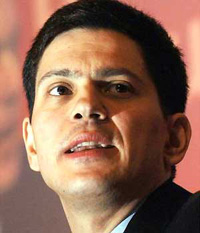EU considering more pressure on Iran

Europe can’t stop considering more sanctions to make Iran stop its nuclear development. Monday European Union nations were discussing the new ways of pressure.
A meeting of EU foreign ministers was to warn Tehran that time is running out and it had to cooperate with the U.N. resolutions calling for it to suspend enrichment.
Diplomats said EU governments were to warn Iran of "further appropriate measures" if it fails to cooperate, notably new economic and political sanctions that could include investment bans, or scrapping export credit guarantees.
The approach is being championed by French Foreign Minister Bernard Kouchner, who called on his EU counterparts last week to study fresh sanctions.
The EU, the United States and others are concerned Iran's nuclear program may be geared toward creating fissile material for nuclear warheads. Iran says its program is strictly for producing radioactive fuel for nuclear power plants.
Britain's Foreign Secretary David Miliband said European trade to Iran had already fallen "by about 37 percent in the year to May," signaling that the EU was serious about punishing Iran.
"The EU is playing its part in signaling very clearly to the Iranian regime that they need to abide by the successive U.N. Security Council resolutions," Miliband told reporters.
In a draft of a statement to be issued by the EU ministers later Monday, they said the EU "regretted Iran had not complied with the unanimous call of the international community to suspend all enrichment-related activity and had not accepted the offer of negotiation."
The draft reiterated that Iran should work closely with the U.N. International Atomic Energy Agency and EU foreign policy chief Javier Solana.
He and the chief U.N. nuclear official Mohamed ElBaradei are to report in mid-November to the Security Council on whether Tehran has cooperated.
Solana said last week that Iran had to show progress in international negotiations or risk new sanctions by the end of the year.
Last month, the five permanent members of the U.N. Security Council - Britain, China, France, the United States and Russia - and Germany agreed with the support of the EU to hold off on a new sanctions resolution until November to allow negotiations with Iran to continue.
If no progress is made on two separate tracks - talks with Solana about an offer of aid in exchange for a suspension in Iran's nuclear program and discussions with IAEA about its past activities - they are to bring the resolution to a vote.
It remains unclear, though, if Russia and China, which oppose sanctions, will support it.
Kouchner said in a letter to EU ministers that sanctions could target new companies - particularly in the banking sector - and new individuals beyond those whose assets are already frozen or who face visa bans under current EU penalties.
"The clock is ticking," he wrote. "If we want to be able to obtain a negotiated solution with Iran, we cannot wait without reacting until we are faced with an Iranian fait accompli."
Subscribe to Pravda.Ru Telegram channel, Facebook, RSS!


